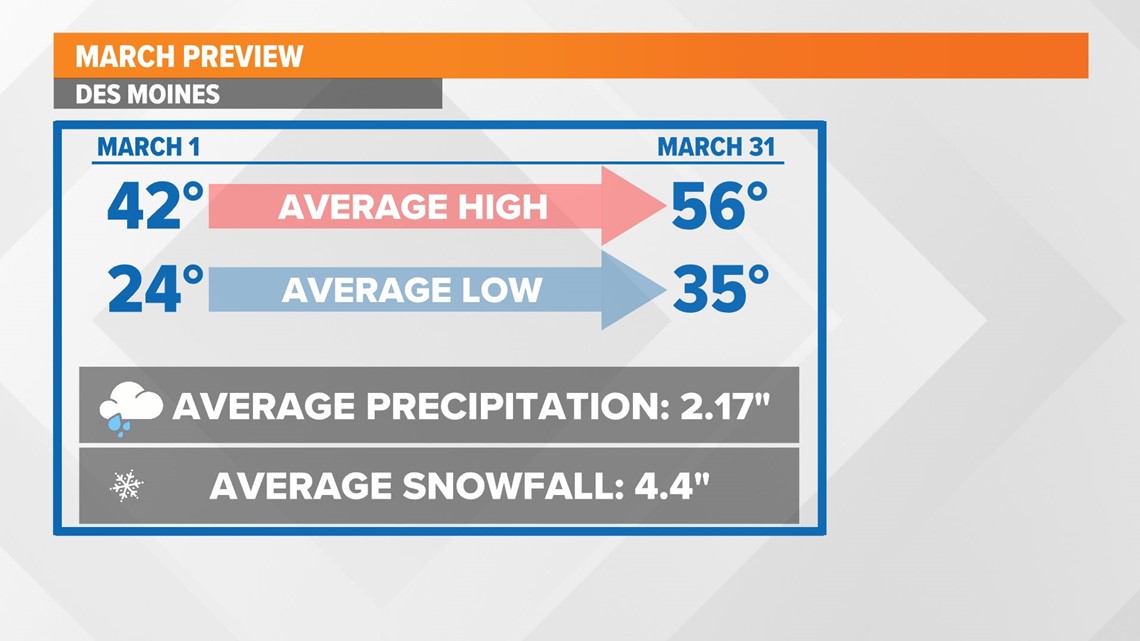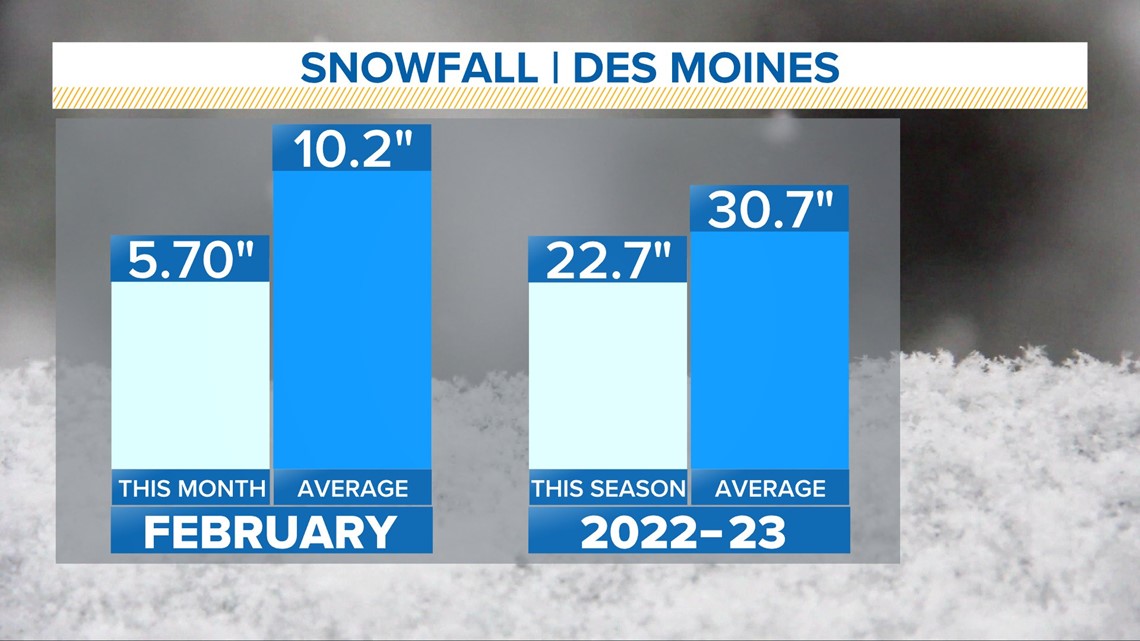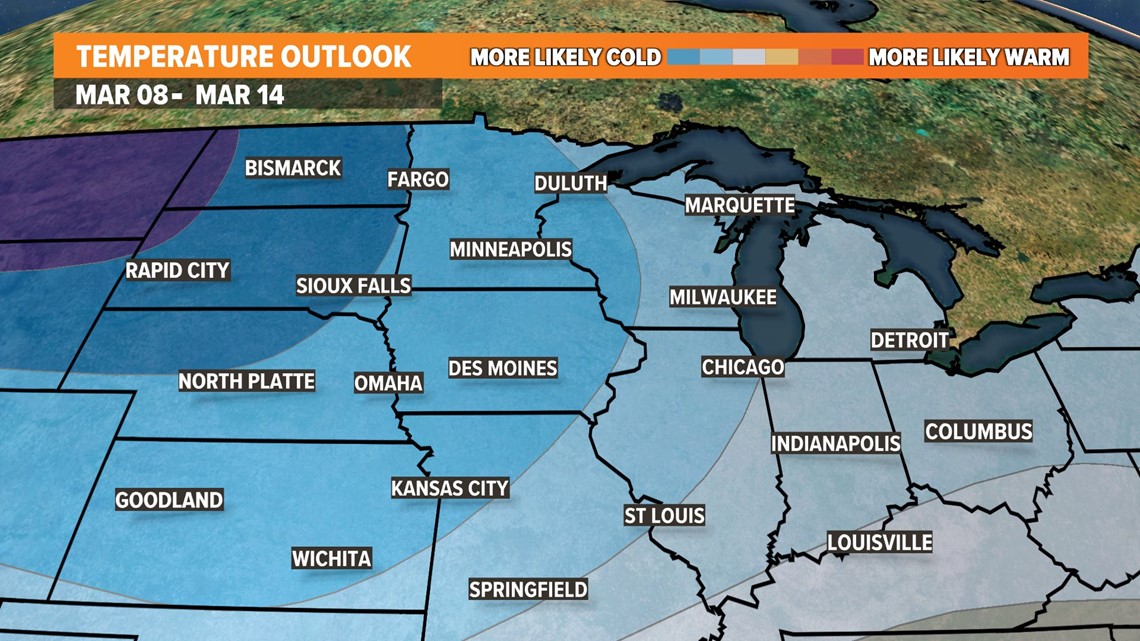DES MOINES, Iowa — Feb. 28 marks the last day of meteorological winter, or the three-month period (December, January, and February) scientists recognize as the coldest time of year.
Meteorologists use the annual temperature cycle to designate seasons, rather than follow astronomical seasons based on Earth's rotation around the sun. It is also simpler to keep track of data and weather or climate records in three-month increments.
The official start of spring — otherwise known as the spring or vernal equinox — will occur at 4:25 p.m. CDT on Monday, March 20, 2023.
Flipping the calendar to March is usually met with a big "Iowa welcome" since the average high temperature climbs more than 10 degrees from March 1 (42°) to March 31 (56°). The average amount of snow drops considerably in March as well, down to 4.4" from a February average of 10.2".


Meteorological winter started on a colder-than-average note in December 2022.
A Christmas week blizzard and severe cold snap is to blame: the average temperature for Des Moines in December came in at just 24.4°, which is about 3° below average. January and February, however, were each nearly 4° above average, with an average of 22.3° in January and an average of 30.7° in February.
Note: The average temperature for February is unofficial because it does not factor in the daily maximum and minimum temperature for February 28.
Although there have been a few larger snow events this winter, Des Moines is also running about 8" below average through the end of February. To date, the city has recorded 22.7" of snow. Normally, we have had around 30" at this point.
Barring any significant storms in March or early April, it is likely this winter will wind up being below average for snowfall as a whole.


Some years, March has been incredibly snowy: see the snowiest Marches on record in 1912 and 1923, with 28" and 25.3" of snow, respectively.
Records show Des Moines in March has only stayed snow-free 10 times in recorded history.
Further, the Climate Prediction Center favors cooler-than-normal temperatures and wetter-than-average weather around the middle of March (March 8-14).


Bottom line: don't put your winter coats away just yet!

